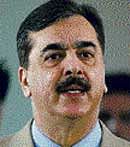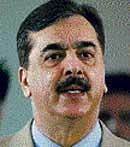
President Asif Ali Zardari, beset by corruption allegations, has been under pressure to give up sweeping powers that his predecessor Pervez Musharraf accumulated for the presidency.
The transfer of the chairmanship of the National Command Authority (NCA), which oversees Pakistan’s nuclear arsenal, came as Zardari could face pressure after the lapse of an amnesty opened several of his top aides to prosecution on graft charges.
That amnesty, and growing criticism that Zardari has too much power, may herald more political instability in Pakistan, worrying the US and its allies as the government also gets increasingly embroiled in a war against Islamist militants.
Key cabinet ministers and the army, navy and air force heads are also members of the NCA, which controls the country’s nuclear programme, including deployment and the use of the weapons.
However, the military manages and controls the nuclear weapons on behalf of the NCA.
Prime Minister Yusuf Raza Gilani told reporters the transfer of the chairmanship was a “a true litmus test” of relations between him and Zardari.
“He who himself was chairman of the NCA has given that authority to the prime minister. What more powers can there be than this, which a prime minister should have?” Gilani asked reporters late on Saturday.
Pakistan set up the NCA in 2000, two years after it conducted nuclear tests. Musharraf introduced the ordinance in 2007.
